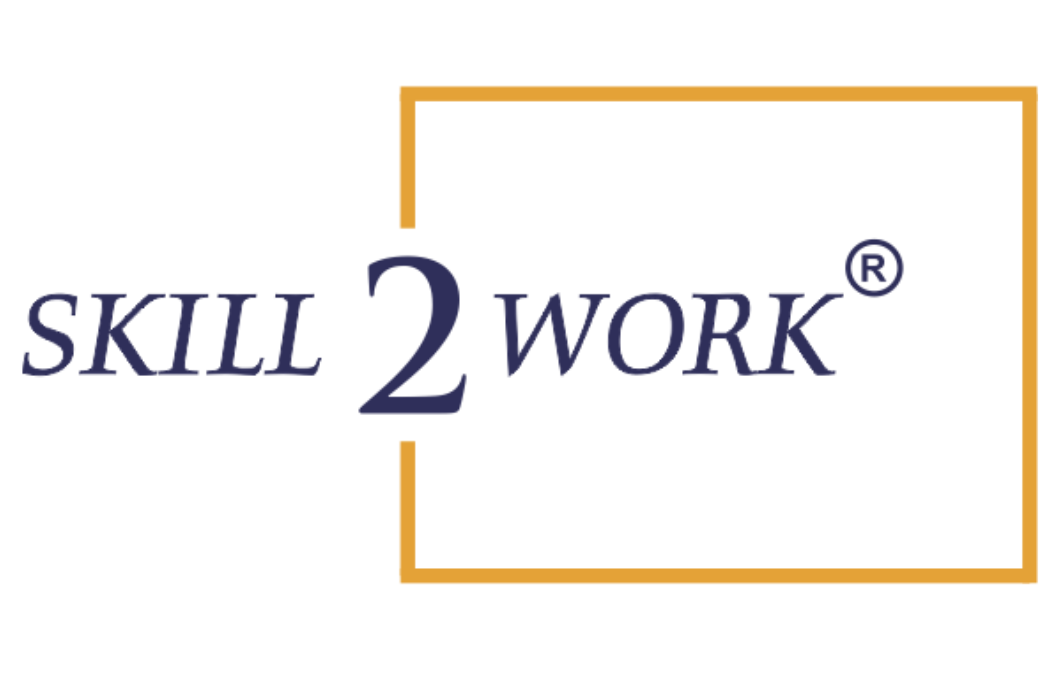Skill2Work Affiliations and Accrediations
At Skill2Work, we’re proud of our strong Skill2Work affiliations with top universities and institutions across India. These partnerships help us stand out as one of the most trusted certified online education providers, making it easier for students and working professionals to choose from a wide range of quality online courses.
By working closely with accredited e-learning partners, we make sure every program we offer meets high academic standards and stays relevant to industry needs. This means learners get recognized online course certifications that aren’t just certificates on paper but real credentials that add value to their resumes and help them grow in their careers.


University Grants Commission The University Grants Commission is a statutory organization under the Ministry of Education, Government of India, established by an Act of Parliament in 1956 for the promotion and co-ordination of university education and for the determination and maintenance of standards of teaching, examination and research in universities, and for the purpose of performing its functions under this Act. In addition to providing grants to eligible universities and colleges, the Commission also advises the Central and State Governments on the measures which are necessary for the development of Higher Education.
University Grants Commission (UGC) - Head Office Bahadur Shah Zafar Marg, New Delhi
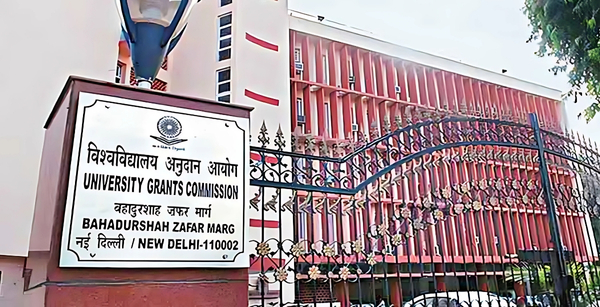
The primary objective of the UGC is to ensure the maintenance of standards and the enhancement of quality in higher educational institutions throughout India. The UGC holds a pivotal role in shaping India’s higher education landscape. Its efforts are geared toward elevating the quality of education, fostering research, and promoting equitable access to higher education opportunities across the nation. Throughout the years, it has been actively engaged in various initiatives and reforms aimed at enhancing the overall educational framework in India.
UGS’s initiatives for the Internationalisation of Higher Education: University Grants Commission (UGC) has initiated several measures for the internationalisation of the Higher Education system in India, persuade to the recommendations of the National Education Policy 2020. The University Grants Commission notified the Guidelines on Internationalisation of Higher Education, which included provisions like setting up an office for International Affairs and Alumni Connect Cell in the universities; University Grants Commission (Academic Collaboration between Indian and Foreign Higher Educational Institutions to offer Twinning, Joint Degree and Dual Degree Programmes) Regulations have been notified to foster academic collaboration between India Higher Educational Institutions and Foreign Higher Educational Institutions.
Welcome to UGC, New Delhi, India 2024 guidelines
| S No. | Title | Year | Published | View Details |
|---|---|---|---|---|
| 1 | Guidelines on Sustainable and Vibrant University-Industry Linkage System for Indian Universities | 2024 | 10/01/2024 | View PDF |
| 2 | Guidelines to Provide Equitable Opportunity for the Socio-Economically Disadvantaged Group (SEDGs) in the HEIs | 2024 | 31/01/2024 | View PDF |
| 3 | UGC Guidelines for Internship/Research Internship for Undergraduate Students | 2024 | 02/02/2024 | View PDF |
| 4 | Guidelines for Institutional Development Plans for Higher Education Institutions | 2024 | 06/02/2024 | View PDF |
For latest guidelines follow https://www.ugc.gov.in/Guideline

Distance Education Bureau (DEB): Distance Education Bureau is a body under the University Grants Commission (UGC) and it has been established to maintain the standards of open and distance education in India. DEB was established in the year 2012 and replaced the Distance Education Council (DEC). Every university needs the approval of DEB to provide online and distance education to students. Universities that have gained recognition from UGC-DEB are allowed to provide courses from the distance learning mode, otherwise, distance degrees from universities will not have any value. In the last six decades the ODL system has registered a phenomenal growth in the context of expansion and diversification of higher education. From a single institution in 1962 (Delhi University) the number of ODL institutions has reached approximately 250 including Central, State, deemed to be and Private Universities along with many stand-alone institutions.
Objectives Of Distance Education Bureau (DEB)
- To offer an alternative for wider opportunities in education
- To offer affordable and efficient education to students
- To provide educational facilities to all interested students
- To offer academic pursuits to individuals who are willing to upgrade their knowledge
- To educate those people who look at learning as life-long activity
Functions Of Distance Education Bureau (DEB)
- To ensure that each university complies with the rules and standards
- To maintain quality of education in these programs
- To increase the impact of distance education in our country
Role Of Distance Education Bureau (DEB)
The Department of Higher Education established the Distance Education Bureau for regulating the processes and activities carried out in distance education programs for higher education in the country. It is important to make sure that the colleges are working as per the standards established by the Distance Education Bureau.
The Distance Education Bureau is an entity that ensures that all the universities offering distance education comply with the standards and rules to maintain the high quality of education in all the courses and programs.
It aims to provide high-quality education for the students which will enrich them with good knowledge and incorporate key skills.
The Bureau takes care of all the activities and tasks related to distance education which includes course material formats, admission processes, document requirements, giving affiliation to the colleges, and conducting exams.

All India Council for Technical Education (Aicte): AICTE is a national-level council for technical education in India and it has been established under the department of higher education. This body has been established as an advisory council for the proper management and development of technical education and management education in India.
All India Council for Technical Education (AICTE) was set up in November 1945 as a national-level Apex Advisory Body to conduct a survey on the facilities available for technical education and to promote development in the country in a coordinated and integrated manner.
In the beginning, it was established as an advisory body but later it gained the status of a statutory body under an act of parliament. This council is responsible to provide guidance and recommendations to colleges affiliated with universities.
The government of India has established certain statutory bodies to regulate and maintain higher education in India so that the standard can be maintained. There are different councils under these bodies, for instance, the distance education council. Statutory bodies like UGC and AICTE have the authority to regulate all the higher education institutes.
Nelson Mandela Marg, Vasant Kunj, New Delhi
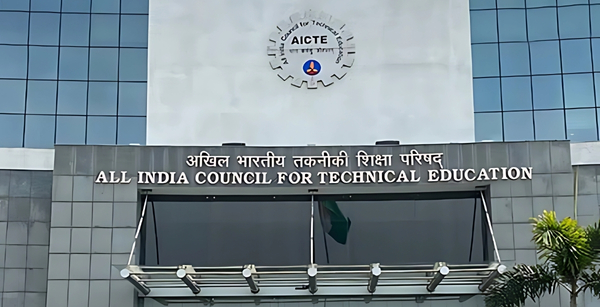
Objectives of AICTE
- Promotion of Quality in technical Education.
- Planning and Coordinated Development of Technical Education System.
- Regulations and Maintenance of Norms and Standards.
Vision of AICTE
To be a world-class organization leading technological and socio-economic development of the country by enhancing the global competitiveness of technical manpower and by ensuring high quality technical education to all sections of the society.
NOTE Universities do not require AICTE approval but technical institutes affiliated with universities require AICTE approval. Also, if your college is UGC-approved but not AICTE-approved, still you won’t suffer any of the consequences as universities do not necessarily require AICTE approval but it is an add-on to their recognition.
EXTRA

Career 360 A data-enabled and technology-driven Educational Products and Services Company, Careers360 seamlessly integrates millions of students and institutional data points with the user-generated preferences of its more than 15 million+ monthly visitors, to build sophisticated Prediction and Recommendation products for the students to explore and achieve career plans, based on their interests and abilities.
Who Is Career 360?
Driven by a 240+ members young team, they cover 25,000+ colleges, 250+ courses and have 250+ products, from exam preparation to college recommendation, used by over 225 Million students every year.

National Institutional Ranking Framework (NIRF) is a ranking methodology adopted by the Ministry of Education, Government of India, to rank institutions of higher education every year in India. The framework was approved by the former Ministry of Human Resource Development (now the Ministry of Education) and launched by the Minister on 29 September 2015.
Depending on their areas of operation, institutions have been ranked under 11 different categories – overall, university, colleges, engineering, management, pharmacy, law, medical, architecture, dental and research. The Framework uses several parameters for ranking purposes like resources, research, and stakeholder perception. These parameters have been grouped into five clusters and these clusters were assigned certain weights. These weights depend on the type of institution. About 3500 institutions voluntarily participated in the first round of rankings
To check the NIRF ranking of your dream college you can visit https://www.nirfindia.org/2023/Ranking.html
Certain FAQs about the NIRF
1) Accreditation VS Ranking
- Accreditation is a 5-year comprehensive assessment of the institution as a whole.
- Ranking is a yearly affair.
- Accreditation gives absolute grade; ranking is relative to the other institutions similarly placed.
2) Since there is already accreditation, should there be ranking too?
- Accreditation is a one-time (5 year) event. Accredited Institutions can slip in their yearly performance.
- Stakeholders are interested in knowing whether the institution is doing better or worse at the end of each year
- Ranking is an Annual Report Card to the Nation and to the stakeholders on what has been done by the institution in the last one year, on the given performance.
- Very few institutions have got the accreditation, whereas ranking is open to all!
- It is due to this reason that across the Countries, there is both accreditation and ranking.
3) Can an institution which had a bad accreditation grade get a good rank and vice versa?
- It is possible. The institutions can slip or do better after they got their accreditation. Ranking is a reflection of the yearly performance
4) Is the score shown against each institution reflective of their performance?
- This score is a relative score, not absolute. Therefore, a statement that ‘The institution with fail marks is ranked in the top 100’, is incorrect. This is NOT an absolute score.
- In each parameter, percentile score using the log-function has been derived, which gives – where the Very few institutions have got the accreditation, whereas ranking is open to all!
- It is due to this reason that across the Countries, there is both accreditation and ranking.
5) How good is the data on which ranking has been done?
- The institutions have given this data certifying that it is correct. Even then, the data has been checked with reference to the data validations that have been built in. For example, if the annual fee is Rs. 10 lakhs, and the institution is claiming that 80% of the students are from economically backward sections, there is an apparent inconsistency. The NIRF checks such data with the institution and other regulator data
- Most of the data pertaining to the research, which has a large weightage, is taken from third party and authentic sources like Scopus or Web of Science. This data is certainly valid and correct.
- We must understand the NIRF score as a reflection of where the institution is standing vis-a-vis other institutions in the similar category.

National Assessment and Accreditation Council (NAAC) checks and rates colleges, universities, and similar institutions to figure out how good they are in terms of quality. NAAC looks at things like how well they teach, the subjects they cover, the teachers, research, facilities, and overall management. It’s like giving them a grade to show how well they’re doing in different areas.
VISION
MISSION
The objectives are as follows:
- Periodic Evaluation: Conduct regular assessments and accreditations of higher education institutions, their units, specific academic programs, or projects.
- Enhance Academic Environment: Foster an academic atmosphere that promotes high-quality teaching, learning, and research in higher education institutions.
- Support Self-Evaluation: Encourage institutions to evaluate themselves, promoting accountability, autonomy, and innovative practices in higher education.
- Quality-Related Initiatives: Undertake research studies, provide consultancy services, and organize training programs focused on improving and maintaining quality in higher education.
- Collaboration: Work together with other stakeholders in higher education to collectively evaluate, promote, and sustain quality standards.
To promote the following core values among the HEIs of the country:
- Contributing to National Development
- Fostering Global Competencies among Students
- Inculcating a Value System among Students
- Promoting the Use of Technology
- Quest for Excellence
- To Check NAAC accreditation results http://naac.gov.in/index.php/en/19-quick-links/62-accreditationresults
- To Check NAAC status http://naac.gov.in/index.php/en/2-uncategorised/32-accreditation-status

National Board of Accreditation purpose is to promote and recognize excellence in technical education in colleges and universities – at both the undergraduate and post graduate levels. Institutions, students, employers, and the public at large all benefit from the external verification of quality provided through the NBA accreditation process. They also benefit from the process of continuous quality improvement that is encouraged by the NBA’s developmental approach to promote excellence in technical education. Through accreditation, the following main purposes are served:
- Support and advice to technical institutions in the maintenance and enhancement of their quality of provision;
- Confidence and assurance on quality to various stakeholders including students;
- Assurance of the good standing of an Institution to government departments and other interested bodies;
- Enabling an Institution to state publicly that it has voluntarily accepted independent inspection and has satisfied all the requirements for satisfactory operation and maintenance of quality in education
Bhisham Pitamah Marg Pragati Vihar, New Delhi
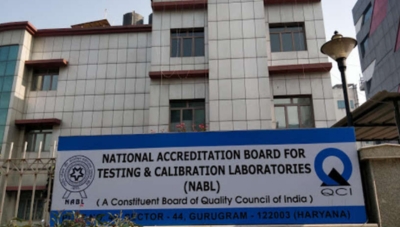
Impact of accreditation
The purpose and impact of accreditation goes far beyond quality assurance of an Institution and its programs. Major impacts of accreditation system are summarized below:
- Encourages quality improvement initiatives by Institutions.
- Improves student enrolment both in terms of quality and quantity.
- Helps the Institution in securing necessary funds.
- Enhances employability of graduates.
- Facilitates transnational recognition of degrees and mobility of graduates and professionals.
- Motivates faculty to participate actively in academic and related Institutional / departmental activities.
- Helps create sound and challenging academic environment in the Institution, and Contributes to social and economic development of the country by producing high quality technical manpower.

Association of Chartered Certified Accountants a globally recognised professional accountancy body providing qualifications and advancing standards in accountancy worldwide. Founded in 1904 to widen access to the accountancy profession, they’ve long championed inclusion and today proudly support a diverse community of over 247,000 members and 526,000 future members in 181 countries.
There forward-looking qualifications, continuous learning and insights are respected and valued by employers in every sector. They equip individuals with the business and finance expertise and ethical judgment to create, protect, and report the sustainable value delivered by organisations and economies.
Guided by their purpose and values, there vision is to develop the accountancy profession the world needs. Partnering with policymakers, standard setters, the donor community, educators and other accountancy bodies, they are strengthening and building a profession that drives a sustainable future for all.
Accreditation of your programmes ensures that students registering with ACCA will receive a level of exemption which matches the knowledge and skills gained from their previous qualifications. Students will benefit from knowing which module choices will lead to maximum exemption from the ACCA examinations and will be assured of receiving the appropriate level of exemption immediately upon registration with ACCA.
ACCA’s accreditation handbook is primarily intended as a source of information for course leaders of educational programmes for which accreditation is already held or is being sought. It provides useful information for other parties, such as departmental heads, student advisers, and anyone with an interest in ACCA exemption accreditation and guidelines.

World Education Services WES is an association that compares the education credentials of a person from the home country to that of the country he/she is willing to migrate to. This comparison is done to equate the educational standards of both countries. It’s an association founded in 1974 and is based in New York. WES helps in evaluating the educational credentials of a person who wants to apply for admission or job position in a foreign country. The main purpose of the WES evaluation is to equate the educational credentials of two different countries and to help authorities or institutions to qualify the person from an outside country applying for the job or admission.

Association of Commonwealth Universities (ACU) established in 1913 is a charitable organization boasting a membership of over 500 institutions in more than 50 countries within the Commonwealth. As the world’s oldest international network of universities, the ACU is dedicated to advancing excellence in higher education for the benefit of individuals and societies across the Commonwealth and beyond. With a collective population of 3 billion, primarily under the age of 30, in Commonwealth nations, the organization pursues its mission through various projects, networks, and events, drawing on the wealth of experience and expertise within its membership.
The ACU actively engages in addressing international higher education issues by administering scholarships, offering academic research, and providing leadership on sector-related matters. Additionally, it promotes collaboration among universities, facilitating the exchange of best practices and encouraging inter-university cooperation to better serve their respective communities.
Governed by its member institutions, the ACU operates under the oversight of an elected Council, with members also serving as Trustees due to its status as a UK-registered charity. The ACU Council, comprising up to 23 members, includes 20 elected Council members, up to two co-opted Council members, and the Honorary Treasurer, who may be either elected or co-opted.

International Qualifications Assessment Service (IQAS) is an Alberta government service. It completes assessments and issues certificates that compare educational credentials from other countries to educational standards in Canada.
In Canada, some occupations are regulated and have legal requirements. To work in these occupations, you must register with the appropriate professional regulatory organization. It helps people get recognition for education and training they received outside of Canada. IQAS issues certificates that compare educational credentials from other countries to educational standards in Canada.
Why get an assessment
You can use an IQAS assessment to support your:
- job search
- professional licensure application
- post-secondary education application

QS World University Rankings , The QS World University Rankings is one of the most widely recognized and respected ranking systems for universities. Each year, QS ranks over 1,000 universities from around the world based on a range of criteria, including academic reputation, employer reputation, research impact, and citations per faculty member. While no ranking system is perfect, there are a number of benefits to the QS World University Rankings for universities.
- One major benefit of the QS World University Rankings is that it provides valuable information to students who are considering where to apply. By looking at the rankings, students can get a sense of which universities are considered to be the best in their field, and can use this information to help make their decision.
- Another benefit of the QS World University Rankings is that it can help universities to increase their visibility and reputation. When universities are included in the rankings, they may receive more attention from prospective students, faculty, and funders.
- In addition to these benefits, the QS World University Rankings can also be useful for universities themselves. By being included in the rankings, universities can receive valuable feedback about where they stand relative to their peers. This can help universities to identify areas for improvement and to develop strategies to address these areas.
- Perhaps one of the most important benefits of the QS World University Rankings is that it can help to promote competition and innovation among universities. When universities are ranked against each other, they may be motivated to work harder to improve their performance in order to move up in the rankings

Times Higher Education’s is one of the three main ranking systems available today which provide a detailed yearly analysis of how well the top universities in the world performed mission is to be the definitive source of data, insight and expertise on higher education worldwide. Their business is to build on 10 million datapoints from 2,500 institutions in 93 countries; on unrivalled news, insight and intelligence; and on a relationship of trust with universities spanning 50 years. This unique combination enables us to help institutions and their leadership teams, as well as millions of students every year, to make the informed decisions that will define their futures. Times Higher Education (THE) publishes a top of the best universities in the world every year. It evaluates world universities based on 5 key metrics
- Teaching: How efficient are university classes and staff
- Research: Is research performed here considered relevant
- Citations: How often are authors from here cited in books or articles
- International outlook: Is the university relevant to the international community
- Industry income: Do businesses give credit to the university

International Outlook Universities are no longer compared just with rivals in their own city, or even their own country; world-leading universities are competing globally and attracting students and researchers from across the world. International outlook is therefore a mark of a top institution, relevant both to international and domestic students. It is measured by three indicators: proportion of international students, proportion of international staff and international collaboration. The benefits of an international environment on campus range from cultivating open-minded discussions with diverse opinions to improving cross-cultural relations. But at a more basic level, an isolated institution without international connections simply cannot count itself among the world’s best universities in an increasingly global and mobile world.

Western Association of Schools and Colleges is a world-renowned accrediting association. The Accrediting Commission for Schools, Western Association of Schools and Colleges (ACS WASC), a world-renowned accrediting association, a regional accrediting association in the United States, works closely with the Office of Overseas Schools under the Department of State. ACS WASC provides assistance to schools located in California, Hawaii, Guam, the Commonwealth of the Northern Marianas, American Samoa, the Federated States of Micronesia, the Republic of the Marshall Islands, Fiji, Asia, and other parts of the world. ACS WASC extends its services to approximately 5,200 public, independent, church-related, charter, online, supplementary education programs/centers, and proprietary pre-K-12 and adult schools; and works with 20 associations in joint accreditation processes, and collaborates with other organizations such as the California Department of Education, the Hawaii Department of Education, the Association of Christian Schools International, the Council of International Schools, and the International Baccalaureate. WASC is a voluntary dual-purpose process for colleges to demonstrate that they provide high-quality learning and model continual self-improvement. WASC accreditation means a college is focused on setting a mission and goals for its learners. The colleges are student-oriented and examines student performance continuously, accepting objective evaluation from a team of outside peer professionals trained by ACS WASC. The colleges also maintain a qualified faculty within an effectively organized colleges, and it collaboratively assesses the quality of its educational programs on a regular basis, making plans for the future.
ACS WASC accredits online schools and programs. ACS WASC has aligned with the iNACOL Standards that are also used by the University of California in the evaluation of online a-g courses. UC requires all online courses to be assessed against the iNACOL Standards for Quality Online Courses before the courses are submitted to UC for “a-g” review. ACS WASC is in the process of integrating the iNACOL standards with the ACS WASC criteria and indicators in all aspects of the accreditation process.

Since 1986, the American Hospitality Academy (AHA) has been providing hospitality training for thousands of students and young adults worldwide at premier resorts and hotels in the USA including Marriott, Ritz Carlton, Hyatt, Sheraton and Hilton. It is through this close working relationship with top industry leaders that AHA has developed an appreciation and a clear understanding of how to best teach leadership and multicultural skills that are vital to success in any career.
Now through the development of AHA’s online programs, students around the world can participate in AHA’s programs and gain the professional development skills needed to succeed in today’s global workplace. AHA’s industry focused seminars and activities emphasize the development of both personal and professional leadership traits needed to be successful in the 21st century workplace.
Their Mission
- Inspire Cultural Understanding
- Develop Global Skills and Knowledge
- Empower People to People Exchange
- Broaden Global Awareness
- Foster International Understanding and Goodwill
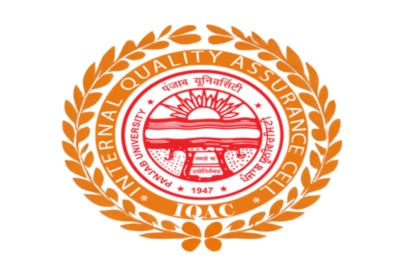
Internal Quality Assurance Cell (IQAC) is a structure that would help educational institutions to improve their work processes and achieve learning outcomes & objectives.
Vision Of IQAC
Speaking of the vision, IQAC primarily focuses on quality enhancement.
Its aim is to introduce a consistent plan of action that would lead the organization towards progress. It involves preparing strategies for –
- Efficient & timely work processes
- Academic research & programs
- Affordable & innovative approaches
- Use of ICT for modernization of education
- Best assessment process for maintaining quality
- Ensuring the best infrastructure to achieve goals
Thus, IQAC considers all the possible aspects that hold the power to bring positive impact of teaching-learning on the students as well as institutions. Assessment, evaluation & improvement may seem simple steps but can turn the game around when performed consistently.
Key Duties Of IQAC
Here are the key duties of IQAC that help institutions to improve their processes.
- Effective Leadership
- Practice Decentralization and Participate Management
- Perspective/Strategic Plan
- Organizational Structure
- Administrative Setup and E-governance
- Effectiveness of various bodies/ Cells/Committees
- Financial Support
- Professional Development
- Co-curricular and Extra-curricular Activities
- Academic Administrative Audit (AAA)
- Participation in various Accreditation and Rankings

Association of Indian Universities (AIU) History and Background
The Inter-University Board (IUB) of India was established on March 23, 1925, at a meeting of university leaders in Bombay. The main goal was to unite all universities in India on a common platform through a coordinating body, ensuring the interests of students and universities were protected. The idea of creating such an organization was suggested by the Sadler Commission in 1919 and later supported by a resolution at a 1924 conference of university leaders in Shimla.
Legal Status and Name Change
The IUB gained legal status as a registered society under the Societies Registration Act of 1860 on September 29, 1967. In 1973, it was renamed the Association of Indian Universities (AIU). Since its beginning, AIU has been actively involved in promoting and developing higher education in India. AIU’s members include all types of universities, such as traditional, open, deemed, state, central, private universities, and Institutes of National Importance. Additionally, 13 universities and institutes from countries like Bangladesh, Bhutan, Kazakhstan, Malaysia, Mauritius, Nepal, Thailand, the UAE, and the UK are associate members.
Vision
AIU aims to become a leading service and advisory organization in India by launching initiatives and programs that strengthen and popularize Indian higher education globally. It seeks to foster national and international collaboration in education, research, sports, youth, and cultural activities.
Mission
AIU’s mission is to promote and represent the higher education system and Indian universities on national and international platforms. It aims to build strong connections with the government, national and international higher education organizations, and sister associations worldwide. AIU strives to support and coordinate with member universities and stakeholders to promote quality education, research, sports, culture, and values.

AACSB International (AACSB) is a global nonprofit organization that connects educators, students, and businesses to help create the next generation of great leaders.
Mission: AACSB works to improve the quality and impact of business schools around the world.
Vision: AACSB aims to make a positive impact on society through business schools.
Values
– Members First: Prioritizing the needs of members.
– Inclusivity: Embracing diversity and promoting equality.
– Global Unity: Fostering a sense of global community.
– Excellence: Striving for the highest standards.
– Curiosity: Encouraging exploration and innovation.
Overview: Founded in 1916 and known for its high standards, AACSB offers quality assurance, business education insights, and professional development services to over 1,900 member organizations and more than 1,000 accredited business schools worldwide. Its accreditation processes are certified to ISO 9001:2015 standards.
Membership: When educational, professional, and business organizations join the AACSB Business Education Alliance, they become part of a global movement to enhance the quality of business education. AACSB fosters connections, shares innovative ideas, and promotes quality throughout its member network and the business community. The organization’s strength lies in its diverse perspectives, global outlook, and dedication to making a positive difference.
Global Presence: AACSB has offices in Tampa, Florida, USA; Amsterdam, the Netherlands; and Singapore.
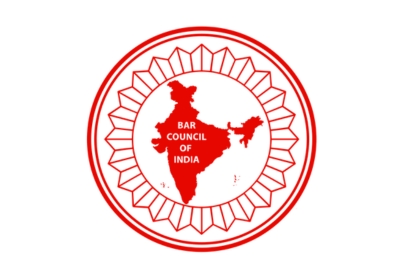
The Bar Council of India is a statutory body created by Parliament to regulate and represent the Indian legal profession.
Key Functions
Regulatory Functions
- Professional Standards: The Council sets rules for professional conduct and behavior for lawyers.
- Disciplinary Actions: It has the authority to discipline lawyers who do not follow these rules.
- Legal Education Standards: It sets the standards for legal education and recognizes universities whose law degrees qualify graduates to become advocates.
Representative Functions
- Advocates’ Rights: The Council protects the rights and interests of lawyers.
- Financial Assistance: It creates funds to provide financial help and welfare schemes for lawyers.
Establishment and Legal Basis
The Bar Council of India was established under the Advocates Act, 1961. Section 7 of this act outlines the Council’s duties and powers.
Detailed Functions
- Professional Conduct: Establish standards for how lawyers should conduct themselves.
- Disciplinary Procedures: Set procedures for handling disciplinary actions against lawyers.
- Advocates’ Rights: Protect the rights and interests of advocates.
- Law Reform: Support and promote changes to improve the law.
- Coordination with State Bar Councils: Work with State Bar Councils on various issues.
- Legal Education Standards: Set and maintain standards for legal education in collaboration with universities and State Bar Councils.
- University Recognition: Approve universities whose law degrees qualify graduates to become advocates. The Council may inspect these universities to ensure they meet the required standards.
- Educational Events: Organize seminars, talks, and publish legal journals and papers.
- Legal Aid: Provide legal assistance to the poor.
- Foreign Qualifications: Recognize law degrees from other countries for admission as advocates in India.
- Financial Management: Manage and invest the Council’s funds.
- Elections: Organize elections for its members who run the Bar Councils.
Additional Funds
The Bar Council of India can create funds for:
- Welfare Schemes: Financial assistance for poor, disabled, or other advocates.
- Legal Aid: Providing legal help to those in need.
- Law Libraries: Establishing libraries for legal resources.
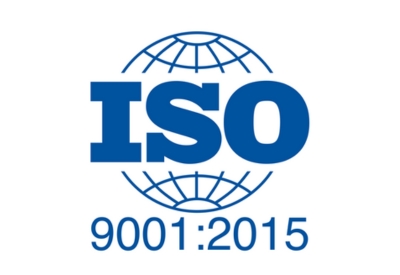
ISO certifications benefit all types of organizations, including educational institutions like schools and colleges. These certifications ensure that educational systems meet high standards for quality, consistency, and management.
Importance of ISO Certification for the Education Sector
Education is a vital need for learners worldwide and is highly competitive. To provide quality education, educational organizations need to obtain ISO Certification. This certification assures students and parents that the education provided meets high standards and operates efficiently and effectively. It boosts confidence in the institution’s ability to deliver quality education.
Benefits of ISO Certification for the Education Industry
- Equal Opportunities: ISO Certification promotes fairness by ensuring all students, regardless of their background, have equal opportunities.
- Risk Management: It helps identify and address risks in the institution’s processes, improving overall safety and reliability.
- Accessibility: ISO Certification is widely recognized and makes education more accessible to students.
- Reputation Enhancement: Achieving ISO Certification enhances the institution’s reputation and credibility in the education sector.
- Innovation and Creativity: The certification encourages the adoption of innovative and creative teaching methods, benefiting learners.

The ASSOCHAM National Council on Education brings together the government, policy makers, educators, experts, and consultants to discuss and address education-related matters. The Associated Chambers of Commerce & Industry of India (ASSOCHAM) is the country’s oldest apex chamber. It brings in actionable insights to strengthen the Indian ecosystem, leveraging its network of more than 4,50,000 members, of which MSMEs represent a large segment. With a strong presence in states, and key cities globally, ASSOCHAM also has more than 400 associations, federations and regional chambers in its fold.
Aligned with the vision of creating a New India, ASSOCHAM works as a conduit between the industry and the Government. The Chamber is an agile and forward-looking institution, leading various initiatives to enhance the global competitiveness of the Indian industry.
What They Do
The Council works with various stakeholders on current education issues, administration, training, and capacity building for educators. They also tackle diverse topics from national to state-level agendas.
Activities
The Council organizes a variety of events such as conferences, dialogues, round tables, seminars, exhibitions, and workshops. These events involve leading institutes, universities, K-12 schools, and companies. They also collaborate with startups, including EdTech companies, to ensure comprehensive development in the education sector.
Purpose
The Council serves as a platform for stakeholders in the education sector to voice their opinions and discuss policies like the National Education Policy (NEP) and the National Assessment and Accreditation Council (NAAC). They address both national and state-level concerns.
Technology and Policy Implementation
The Council plays a crucial role in implementing new technologies in education. They ensure active participation from their members and stakeholders to bridge the gap between new policies and their impact on the education sector.
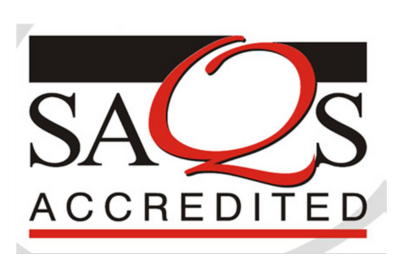
SAQS was launched in 2003 by AMDISA and was designed through a process of close cooperation between existing international accreditation bodies in the field of management education. AMDISA – Association of Management Development Institutions in South Asia, established in 1989, is a network of Management Education and Management Development Institutions. It is an international not-for-profit association. AMDISA launched the global benchmark quality assurance and accreditation system for Business Schools – SAQS, as a service to the management education profession worldwide. SAQS emerged in an EFMD – AMDISA cooperation through a European Union funded Asia – Link project in 2003-04. It has an established presence in Bangladesh, India, Maldives, Nepal, Pakistan, Sri Lanka.
SAQS is a globally benchmarked system for mentoring, quality improvement, quality assurance and accreditation. Its processes lead to improvement through highlighting the need to meet internationally accepted quality standards. SAQS Accredited Quality Label is a recognition to the institution’s commitment to Quality and Quality Assurance through continuous improvement. SAQS accreditation is institutional. Institution being defined as the organizational unit providing business and management education. Recently, Association of Indian Universities (AIU), New Delhi, India has accepted AMDISA’s Quality Assurance Program SAQS at par with NBA accreditation for according equivalence to the two-year full time PGDM with MBA degree of Indian Universities.
The principal features of the SAQS process and standards can be summarized as follows:
- Offers an international and intercultural approach to quality assessment.
- Places a great emphasis on corporate concerns, both in the standards themselves and in the assessment processes.
- Looks at the performance of the School taken as a whole, including all of its programmes and not just the MBA programme, and uses outcome-based perspectives and criteria.
- Special attention is paid to executive education.
- Stresses the personal development of MBA students and support of their interpersonal, entrepreneurial and managerial skills.
- Is conceived as a learning process involving an international forum for defining the relevant quality criteria.
- Is dynamic and forward looking with a concern for new trends.
Features
– International and Inter-Cultural Approach: SAQS offers a quality assessment that incorporates both international standards and cultural considerations.
– Corporate Focus: Emphasizes corporate concerns in both standards and assessment processes.
– Comprehensive Performance Review: Evaluates overall performance, including all programs, with a focus on outcomes. Special attention is given to executive education.
– Peer Review Visit: The main goal is to assess the quality of the school’s activities based on SAQS criteria. Additionally, it provides consultancy for quality improvement and strategic audit benefits.
– Expert Review Team: Involves experienced academics and a senior corporate executive to ensure a balanced perspective on corporate concerns.
– Continuous Improvement: Facilitates ongoing development through periodic progress reviews, aligning with SAQS’s commitment to continuous improvement.

The World University Rankings for Innovation (WURI) evaluates higher education institutions’ real contributions to industry and society, focusing on innovative education, research, and community engagement. It uses 13 categories to measure institutions’ creative contributions to societal advancement, aiming to highlight those that excel in these areas and inspire progress in the academic and societal landscape.
Background
- Embracing Innovation: Pioneering a New Era for Higher Education
In today’s rapidly changing world, innovation is crucial for continuous growth. Organizations across various sectors strive to innovate to adapt and thrive. Higher education institutions, in particular, innovate to overcome outdated strategies, seize new opportunities, and respond to significant changes like the development of AI and the pandemic. The need for innovation has never been more critical.
- Changing Landscape of Higher Education
Tech giants like Apple and Google are revolutionizing hiring practices by bypassing traditional college degrees and offering short, intensive courses that last only six months. This shift challenges the conventional value of higher education and urges universities to rethink their approaches. Neo-Boutique Universities, founded by successful entrepreneurs or institutions, are emerging to meet industry needs that traditional education systems fail to address.
- Evolving Objectives of Higher Education Institutions
With over 30,000 universities worldwide, the primary goal remains to prepare students for an uncertain future across various disciplines. While many excel in traditional education and research, the disruption of conventional educational paradigms necessitates new approaches. To stay relevant, universities must create real-world impact and address societal needs, making their role in serving present-day society and industry as crucial as their educational mission.
- The Need for a New Ranking System
Given the evolving landscape, a new ranking system is needed to prioritize institutions that excel in creating real impact on society and industry. Current rankings focus too much on academic tradition, failing to reflect changing societal and industry trends. This disadvantages universities that emphasize practical impact. The existing system’s reliance on past quantifiable data does not guide institutions toward future-oriented innovation. A new ranking system would celebrate universities investing in long-term innovation and recognize their specialized visions, promoting differentiation and future success.

Times Higher Education (THE) annually presents the University Impact Rankings, highlighting institutions excelling across various United Nations Sustainable Development Goals (SDGs). These universities not only excel in individual areas but also demonstrate comprehensive excellence in contributing to global sustainable development. THE’s mission spans data, insight, and expertise in higher education, supporting institutions worldwide with strategic decision-making based on extensive data and global rankings. Through a suite of tools and services, THE fosters a global community of universities, students, and policymakers, facilitating informed decisions and impactful collaborations in higher education.
- Higher Education Data
In the era of data, universities rely on us for market analysis, benchmarking, and strategic goal-setting. Our five decades of experience provide deep insights into higher education dynamics, while our global rankings establish benchmarks for excellence and create internationally comparable datasets. Explore our suite of data products that support universities worldwide and governments seeking data-driven insights.
- A Global Community
THE reaches over 65 million visitors annually through our global network, spanning prospective students, faculty, university leaders, funders, and policymakers. Hundreds of universities subscribe to access our content, and our Campus+ network promotes best practices and thought leadership. Our global events convene leaders across academia, government, and industry to shape the future of higher education.
- Professional Services
As a multifaceted entity, THE offers tailored solutions for universities, governments, and corporate partners. Our extensive audience enables targeted branding campaigns, and our consultancy team helps address complex challenges and develop strategies for success. We also facilitate recruitment through our job boards, offering access to a diverse talent pool globally.
- THE Student
THE Student is a trusted resource for prospective students, attracting 14 million visitors annually with influential university rankings and expert guidance. We connect students with universities best suited to their needs through strategic partnerships.
